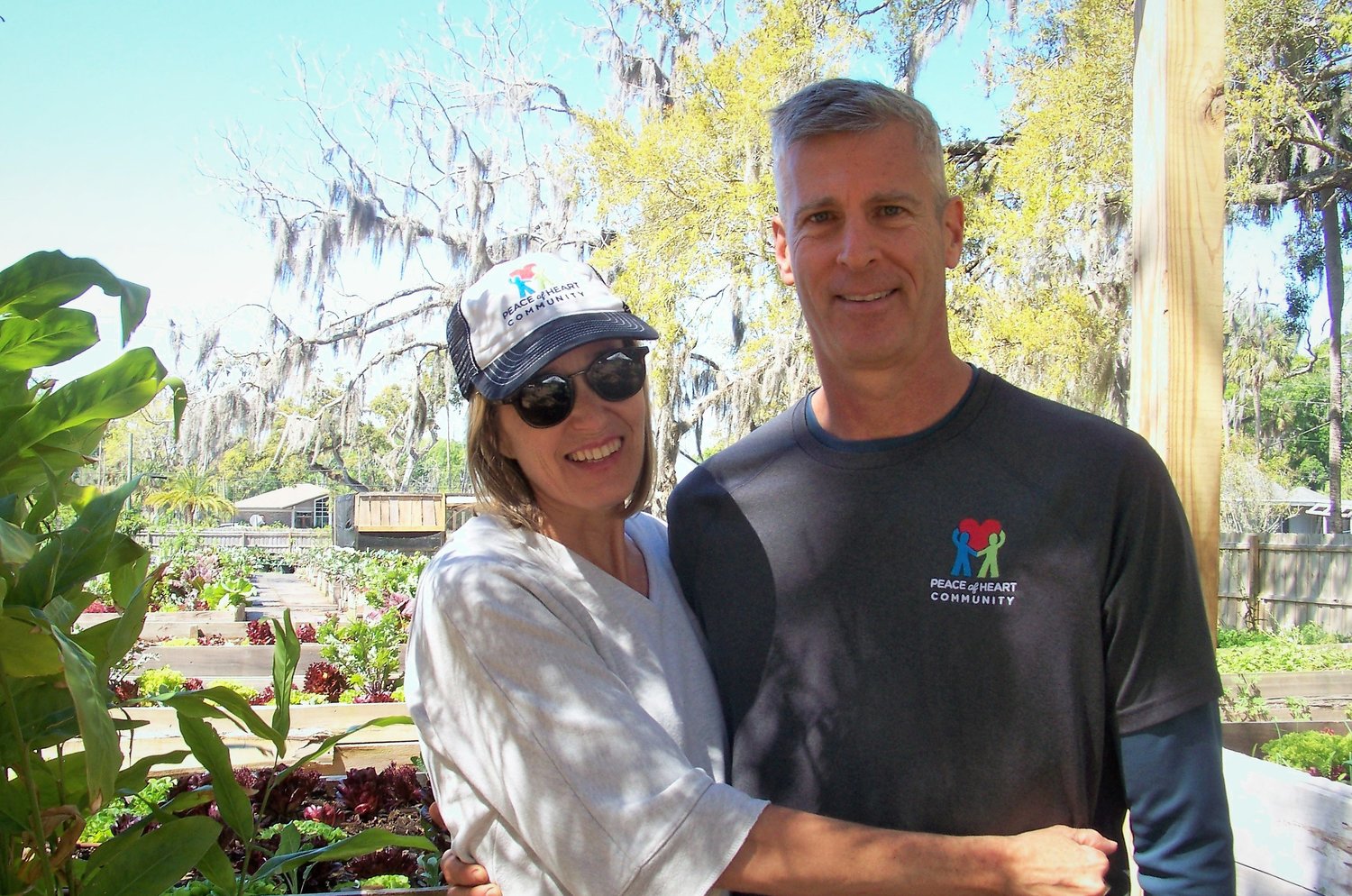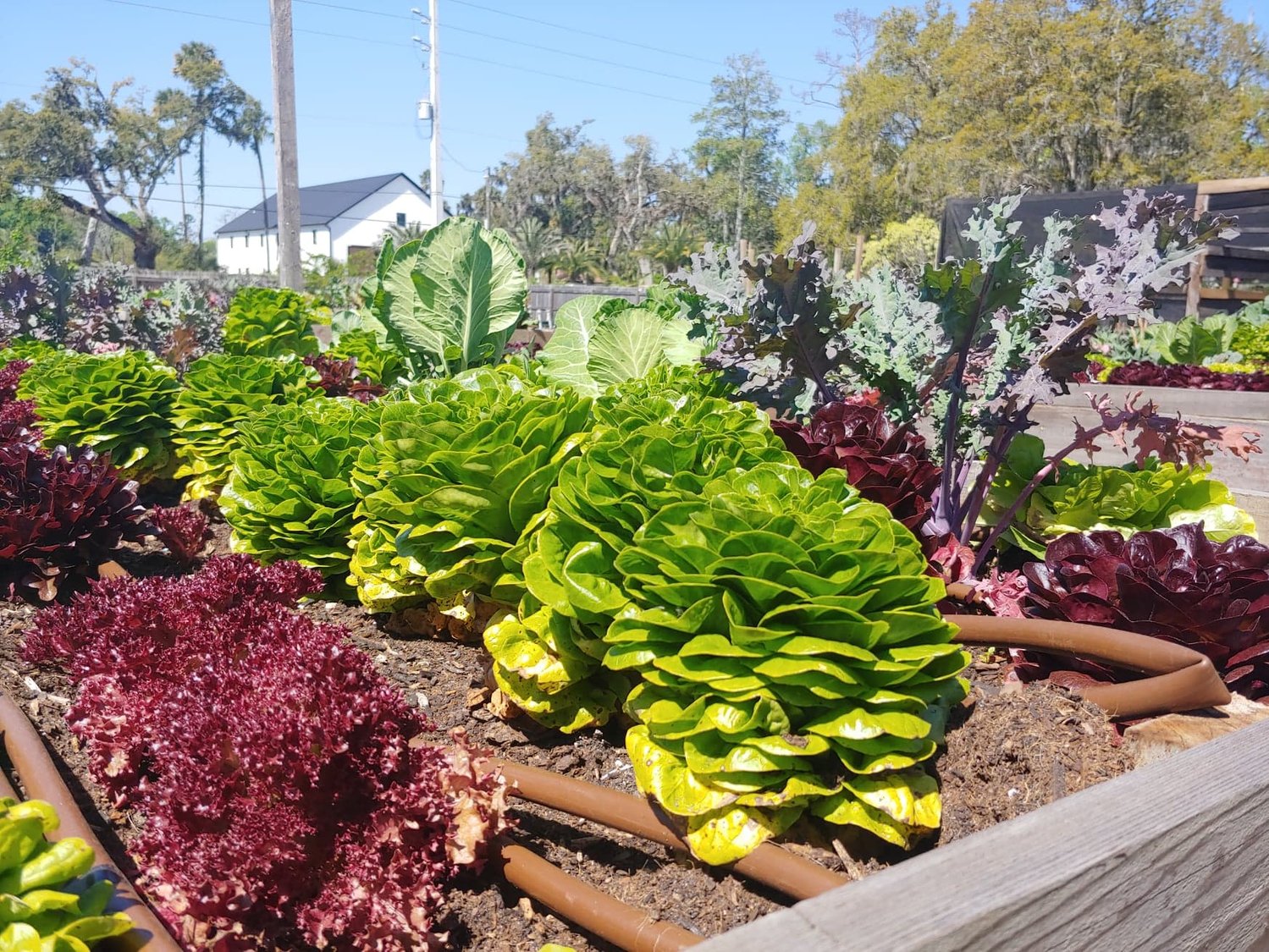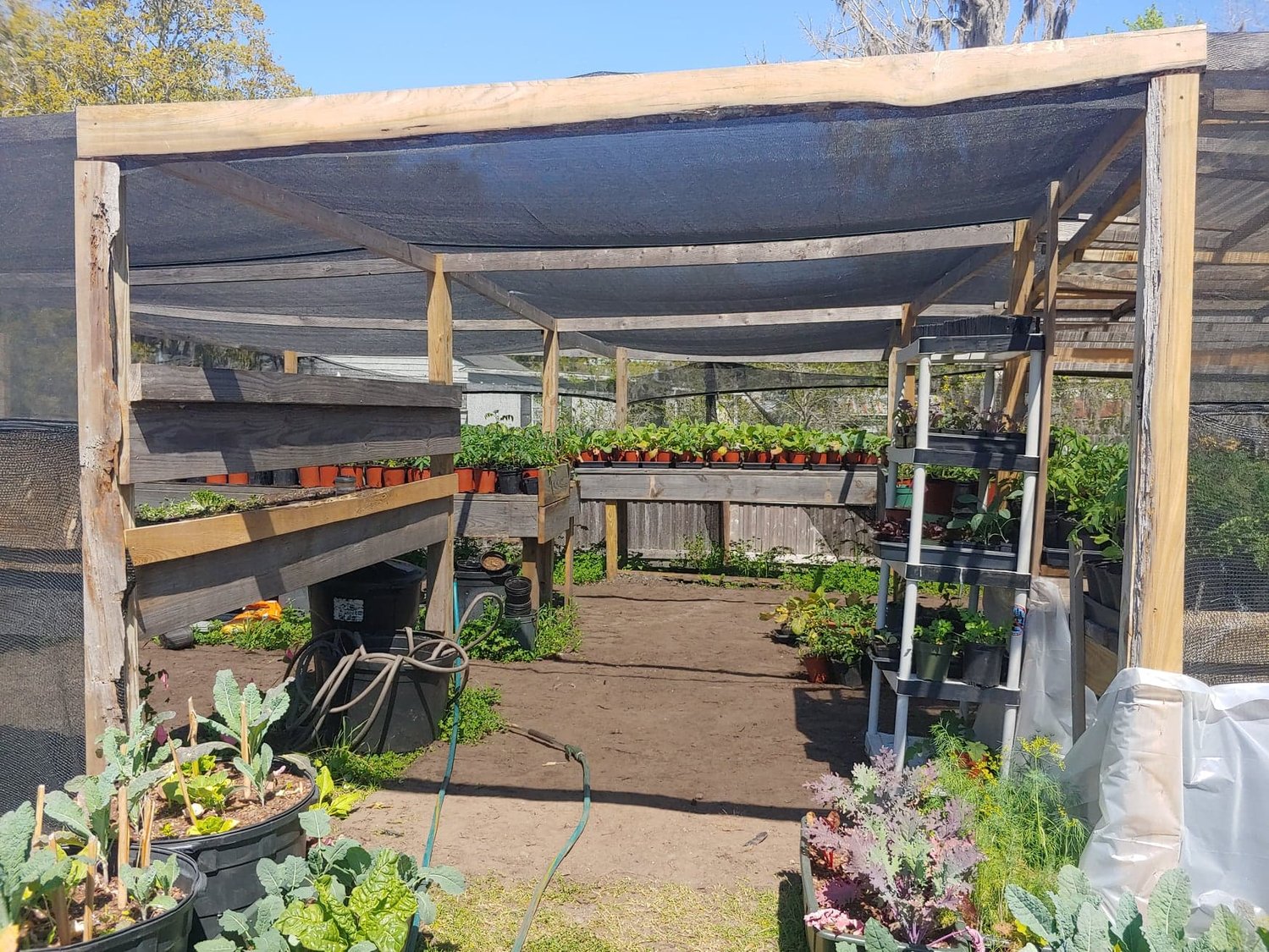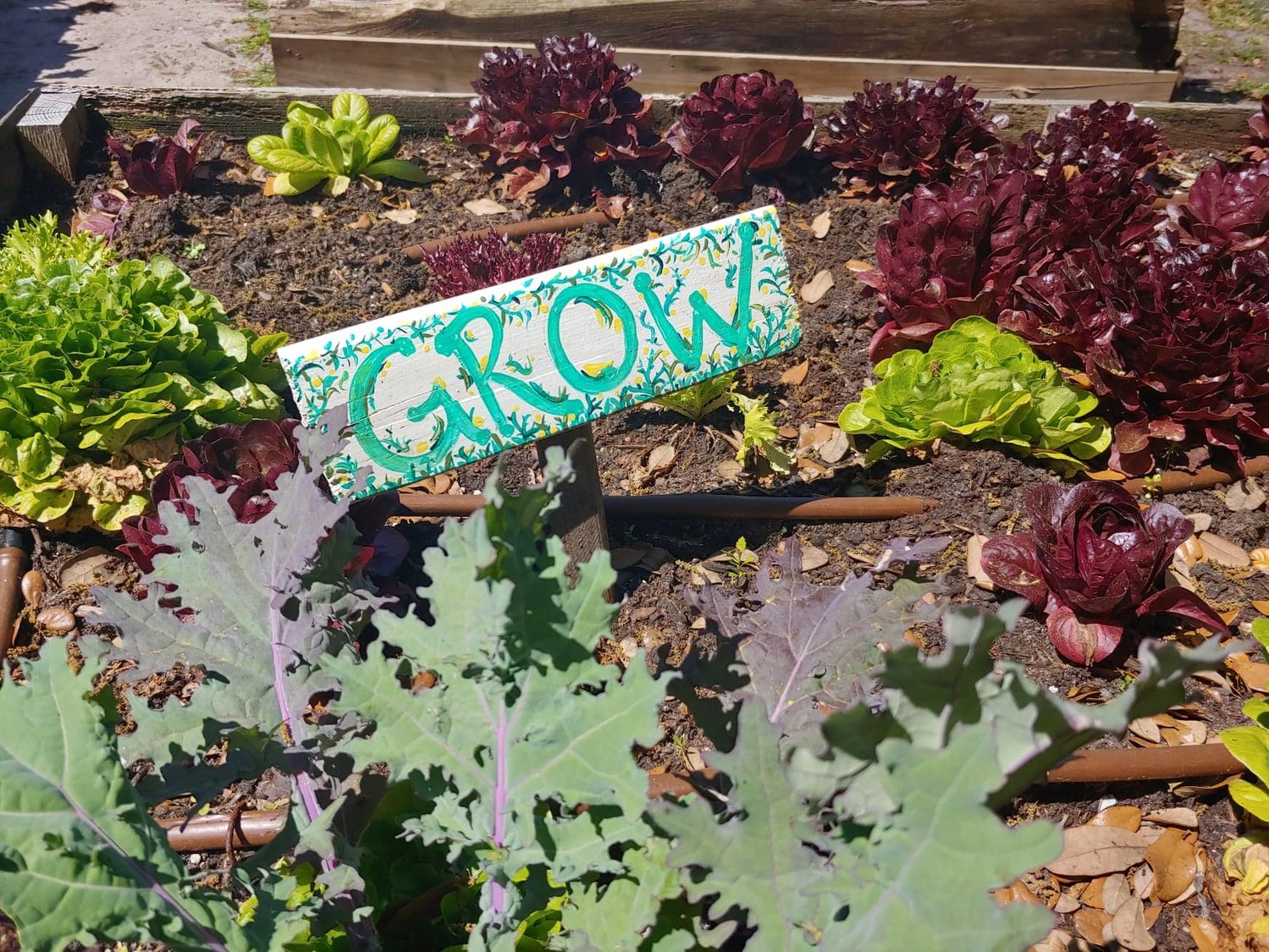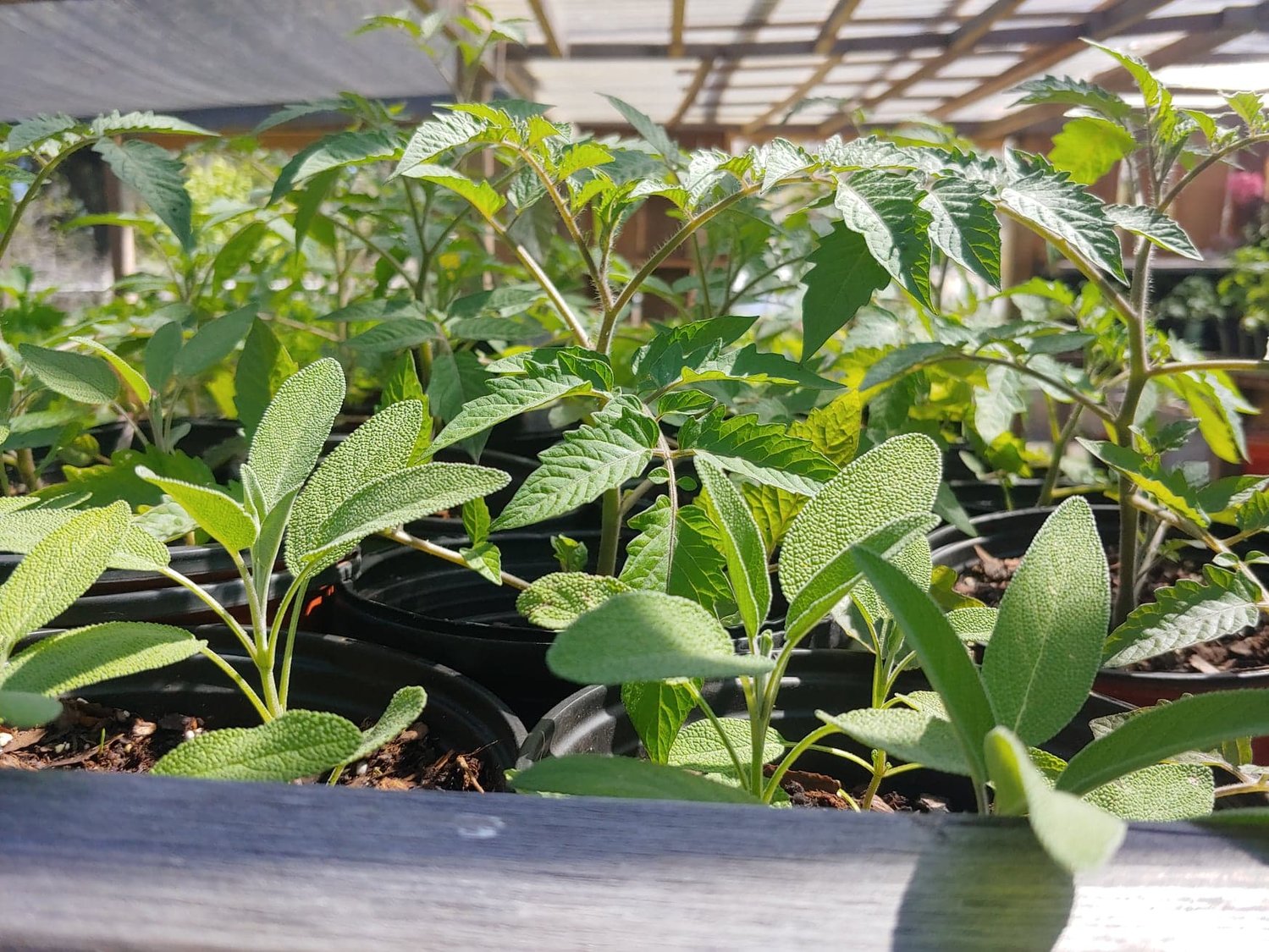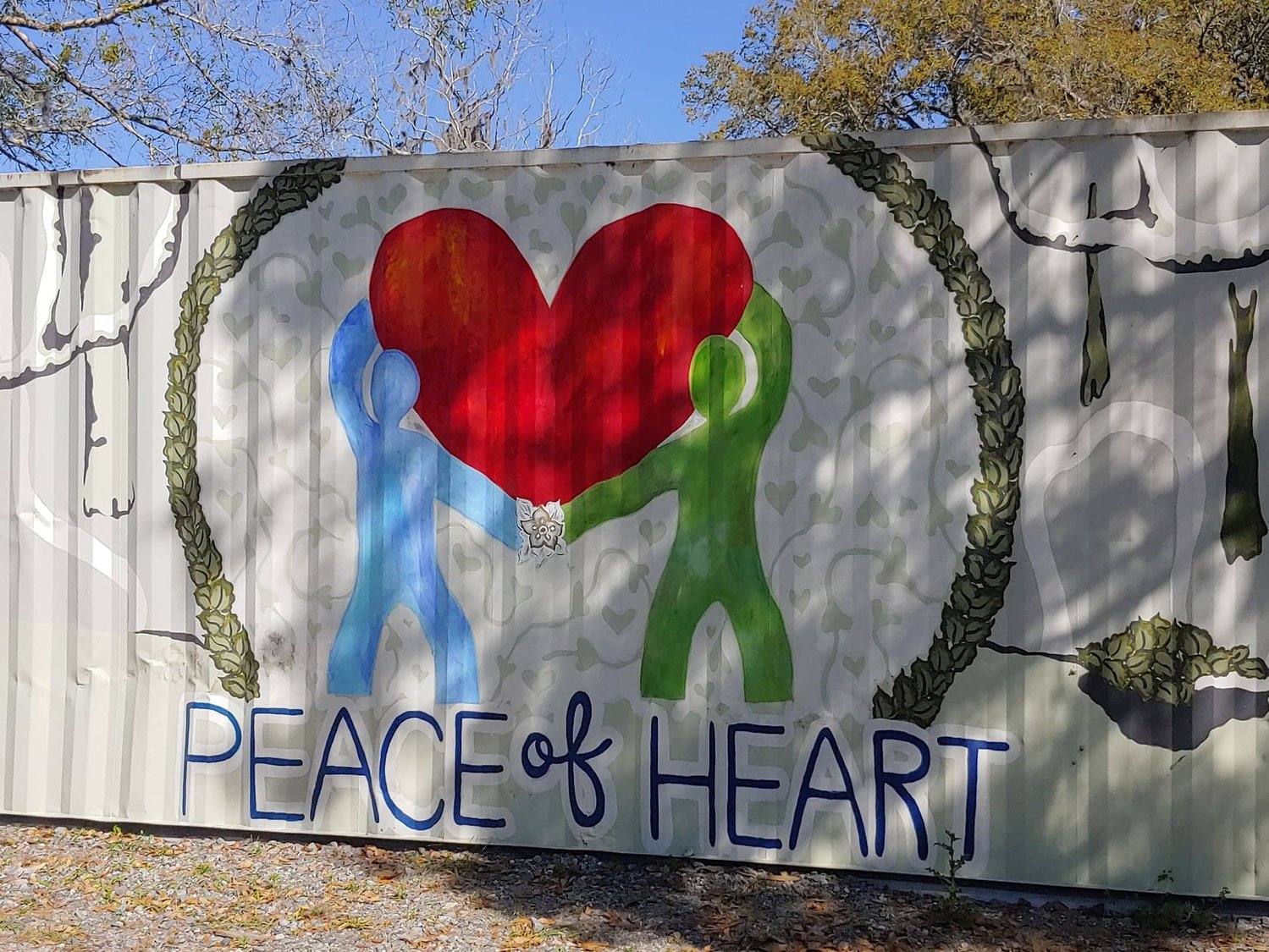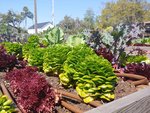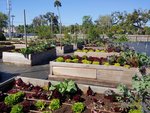Peace of Heart Community
A garden for a meaningful life
It’s another productive Saturday morning at the Peace of Heart Community garden, hidden within the wooded area of Roscoe Boulevard in Ponte Vedra Beach. Volunteers are tending to the produce beds and helping guests, while the Peace of Heart Community founders’ 22-year-old daughter, Gentry Groshell, decides what she wants to eat.
“I’m thinking about taking you somewhere for lunch,” Gentry’s mother and Peace of Heart co-founder, Amy Groshell, says to her. “Maybe pizza or hamburgers? You want to figure out where you’d like to go?”
Gentry, hungry and excited, hurries back inside to think of her answer.
Gentry Groshell has autism. She lives with her parents, Amy and Howard Groshell. When she’s not at home, she’s hanging out at the Peace of Heart group home.
“Right now, we only have two residents, but eventually we’ll have six and the girls will be interacting,” Amy Groshell says. “It’s just a really great way to engage our girls into the community. Eventually, we want to be out in the community more, but this is like a stepping stone.”
Amy and Howard plan to do that with the maintenance of the Peace of Heart Community garden.
“Our hope is that as the community gets involved in this, they’ll build strong relationships with the girls living in the home and individuals with autism within the community, Howard says. “‘A meaningful life.’ That’s kind of our tagline. Meaning can come through working in the garden and having a skill, but it’s really about the relationships that are built.”
The Peace of Heart Community garden is currently a community-supported agriculture (CSA) model where people purchase “raised beds” for an annual fee and then come out every Saturday to harvest.
Volunteers from the community contribute to the program by helping with the harvesting and interacting with guests and the girls from the home.
“It’s really great that people want to be involved,” Howard says. “Kids come out here looking for community hours. It’s really exciting to see. The proceeds go back to supporting the garden. We’re going to be moving into a vocational program in the future. Hopefully, that’ll be where other schools, groups or anybody with autism can come out and participate.”
The garden is in plain sight when driving on Roscoe Boulevard. Rows and rows of rustic, wooden beds lie in the sunshine, while a small tented greenhouse rests to the side. Teens are seen racking up their service hours and hosing down plants, while other volunteers from the community prepare the fresh produce for guests to take home. Some of these volunteers are also people living with autism, learning new skills or just enjoying a day in the garden.
“My dream is to expand to where every weekend, volunteers come in while different schools or groups with individuals with autism come here and learn about gardening and possibly even make a living at it someday,” Howard says. “We believe that it’s about creating meaningful relationships with individuals with autism. That’s our main goal and that’s how the garden came about.”
The Groshells opened the garden about three years ago, and it’s gone above and beyond their expectations. They sold 50 beds in 2019 and will keep it at that number per year to see what they can grow and if they can keep up with supplying the individuals.
The Groshells firmly believe in reverse inclusion, or allowing and accepting the community to come to them, through the group home and garden. This seems to be a pioneer idea in terms of group homes for people with autism and other disabilities, according to the Groshells.
“A lot of the group homes right now are very institutionalized and there is no interaction with the community. It’s actually prohibited in some places,” Howard says. “Philosophically, we believe that it’s not just about helping somebody with a disability by giving them things. It’s about creating meaningful relationships.”
Amy says Peace of Heart involves a “mutual exchange.”
“We don’t look at it like, ‘Oh, poor Gentry, let me help you. You can’t do this,’ and then I feel better about myself because I’m helping a disabled person,” Amy says. “Here, it’s like, ‘No, I recognize that in helping you, that I get back.’ There are things that Gentry’s going to teach me about myself that I need to work on. So, we see it as more interpersonal.”
Probably the most unique aspect of Peace of Heart is the home’s use of facilitated communication. The girls can communicate through iPads, giving all of them a voice for the first time in their lives. Howard says the house manager, Morgan Tyner, is a certified instructor, and everyone in the house has been trained.
When asked what Tyner thought the girls’ favorite part of the community was, she narrowed it down to two possibilities.
“I see that there’s a huge connection with nature,” she answers. “Whether it’s the animals, walks by the fire or being outside in the garden, I think the nature aspect is huge. I also really think it’s the peace of belonging to, which is not necessarily a physical space, but just the idea that there’s belonging.”
Back at the garden, Gentry walks back outside and grabs some fresh greens to munch on before going out to eat.
“She loves healthy food, too so that’s another driving force to the garden,” Amy says. “It brings the community in, it gives the girls something to do, it provides for the house and it’s healthy. There are so many things that it does.”
Gentry balls her hand in a fist, lifts it up and starts swaying it side to side as if she had her hands on a steering wheel.
“You’re not driving anywhere,” Amy says jokingly and warmly. “Good luck with that, girl.”
Then, Gentry makes a decision, answering her mother’s previous question. Hamburgers it is.


